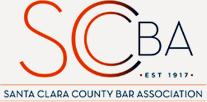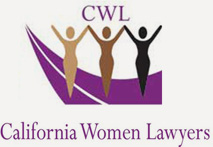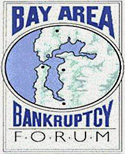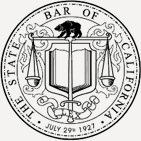 California has long prohibited employers from requiring employees to sign agreements denying the employee the right to disclose information about unlawful acts in the workplace, including but not limited to, sexual harassment in order to obtain a raise or bonus or as a condition of employment or continued employment.
California has long prohibited employers from requiring employees to sign agreements denying the employee the right to disclose information about unlawful acts in the workplace, including but not limited to, sexual harassment in order to obtain a raise or bonus or as a condition of employment or continued employment.

408-971-6270
 In a 74-page decision last Thursday, October 22, the California Court of Appeal upheld the lower court’s grant of preliminary injunction that “restrains Uber and Lyft from classifying their drivers as independent contracts.” The People of the State of California v. Uber Technologies, Inc., et al. (2020) 2020 Cal. App. LEXIS 988, 2020 WL 6193994.
In a 74-page decision last Thursday, October 22, the California Court of Appeal upheld the lower court’s grant of preliminary injunction that “restrains Uber and Lyft from classifying their drivers as independent contracts.” The People of the State of California v. Uber Technologies, Inc., et al. (2020) 2020 Cal. App. LEXIS 988, 2020 WL 6193994.
The current law governing whether a worker is an employee or an independent contractor comes from a 2018 California Supreme Court case, Dynamex Operations W. v. Superior Court (2018) 4 Cal. 5th 903, which the California legislature codified into Labor Code Section 2775. Section 2775 establishes a presumption that one who provides labor or services for payment is an employee. (California Labor Code § 2775, subd. (b)(1).) This presumption may be rebutted if “the hiring entity” establishes multiple elements referred to as the “ABC test.”
COVID Employment Law Update
 On March 18, 2020, the Families First Coronavirus Response Act was signed into law. This new law expands many employers’ obligations to provide sick leave to employees impacted by COVID-19.
On March 18, 2020, the Families First Coronavirus Response Act was signed into law. This new law expands many employers’ obligations to provide sick leave to employees impacted by COVID-19.
Generally, the Act provides that all covered employers must provide all employees with up two weeks of paid sick leave at the regular rate of pay for up to two weeks if the employee is:
- personally experiencing symptoms of COVID-19 and seeking a medical diagnosis; or
- is personally subject to a quarantine instruction from a Federal, State, or local government or a medical professional.
 Employees in California are protected by the Workers’ Compensation Act (WCA) which governs “compensation given to California employees for injuries incurred in the course and scope of their employment.” Charles J. Vacanti, M.D., Inc. v. State Comp. Ins. Fund (2001) 24 Cal.4th 800, 810. All employers except the state must secure the payments of compensation by either carrying workers’ compensation insurance or self-insuring. In a recent case, the San Mountain Empire School District was self-insured, but had also contracted for excess policy insurance. In the case of the Mountain Empire School District, its excess insurer ran out of money.
Employees in California are protected by the Workers’ Compensation Act (WCA) which governs “compensation given to California employees for injuries incurred in the course and scope of their employment.” Charles J. Vacanti, M.D., Inc. v. State Comp. Ins. Fund (2001) 24 Cal.4th 800, 810. All employers except the state must secure the payments of compensation by either carrying workers’ compensation insurance or self-insuring. In a recent case, the San Mountain Empire School District was self-insured, but had also contracted for excess policy insurance. In the case of the Mountain Empire School District, its excess insurer ran out of money.
California law also provides for protection to both “insured and the public” through a system called the California Insurance Guarantee Association (CIGA). Fireman’s Fund Ins. Co. v. Workers Comp. Appeals Bd. (2010) 189 Cal.App.4th 101, 111-112. CIGA pays only: 1) covered claims and 2) claims for which neither a solvent insurer or self-insured employer is jointly and severally liable.
 The Ninth Circuit has expanded the scope of claims that are subject to arbitration clauses to include racial discrimination claims under 42 U.S.C. Section 1981. Lambert v. Tesla, 2019 U.S. App. LEXIS 14591.
The Ninth Circuit has expanded the scope of claims that are subject to arbitration clauses to include racial discrimination claims under 42 U.S.C. Section 1981. Lambert v. Tesla, 2019 U.S. App. LEXIS 14591.
In 2015, DeWitt Lambert, who is African American, began working as a production associate in Tesla’s Fremont, California factory. He claimed that during his employment other employees consistently harassed him and that he was not promoted because of his race. Lambert alleged that his complaints to human resources went nowhere.
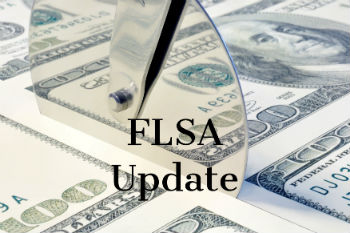 The United States Department of Labor issued new regulations today affecting the white collar exemptions to the overtime wage and hour laws under FLSA. (The Fair Labor Standards Act.) DOL apparently set a new threshold amount for claiming the exemption. Workers must now make $35,308 per year in order to claim any of the white collar exemptions. The effect of the new overtime rules, issued today, March 7, 2019, is unclear as a number of groups have indicated that they intend to take legal actions related to these new regulations.
The United States Department of Labor issued new regulations today affecting the white collar exemptions to the overtime wage and hour laws under FLSA. (The Fair Labor Standards Act.) DOL apparently set a new threshold amount for claiming the exemption. Workers must now make $35,308 per year in order to claim any of the white collar exemptions. The effect of the new overtime rules, issued today, March 7, 2019, is unclear as a number of groups have indicated that they intend to take legal actions related to these new regulations.
[DOL’s Fact Sheet here: https://www.dol.gov/whd/overtime/fs17a_overview.htm]
Diemer & Wei, LLP routinely represents employers related to wage and hour claims. Please call if you need legal advice about this type of matter, or are concerned about how the new rules might affect your business operations.
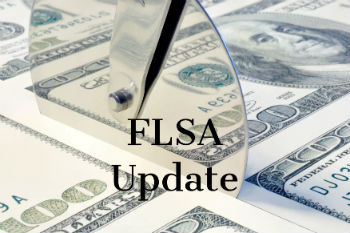 The Southern District of New York Court ruled against the employees claim that both the Franchisor and the independent Franchisees were liable in a class action wage and hour claim In Re Domino’s Pizza.
The Southern District of New York Court ruled against the employees claim that both the Franchisor and the independent Franchisees were liable in a class action wage and hour claim In Re Domino’s Pizza.
Although the In Re Domino’s Pizza case does not control California courts decisions in wage and hour cases, the case is important because it is the first court to squarely address the issue of whether both franchisors and franchisees can be liable. Additionally, the New York District Court is generally quite influential, and the decision itself is thorough, clearly setting out it’s thought process and the law underpinning that thought process.
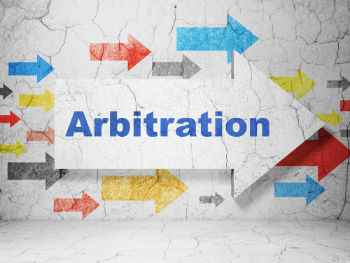 California employers should consider the routine use of arbitration agreements for employees, to avoid the risk of class action litigation. The United State Supreme Court in Epic Systems Corp. v. Lewis, 138 S. Ct. 1612 (2018) upheld class action waivers contained in arbitration agreements. Just a week ago the Ninth Circuit Court of Appeals overruled the Northern District Court of California, specifically finding that arbitration agreements containing class action waivers are valid. See, O’Connor v. Uber Technologies, Inc., Case No. 14-16078.
California employers should consider the routine use of arbitration agreements for employees, to avoid the risk of class action litigation. The United State Supreme Court in Epic Systems Corp. v. Lewis, 138 S. Ct. 1612 (2018) upheld class action waivers contained in arbitration agreements. Just a week ago the Ninth Circuit Court of Appeals overruled the Northern District Court of California, specifically finding that arbitration agreements containing class action waivers are valid. See, O’Connor v. Uber Technologies, Inc., Case No. 14-16078.
TAKEAWAY⇒California employers should update their procedures, and consider implementing arbitration agreements for all employees, containing a specific class action waiver, in the form and style used in the Epic Systems, and Uber Technologies, Inc. cases, in order to assist in limiting risk of class action lawsuits by employees such as wage and hour claims, and meal and rest break litigation.
